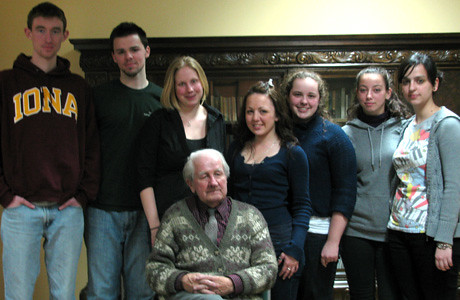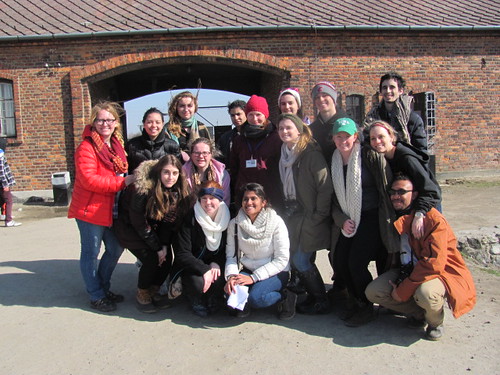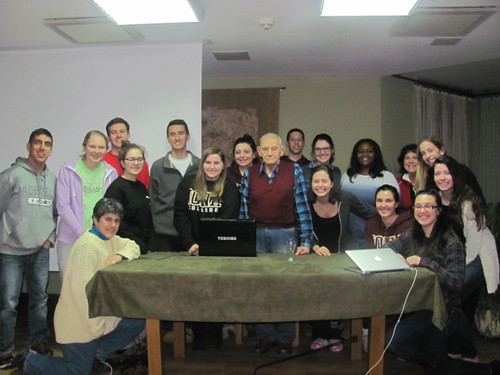It has been a month and two weeks since I have returned from
Poland. I have had much time to reflect and truly understand what I witnessed
and subsequently, how it has affected my life. As a senior, I have reflected a
lot about my four years here at Iona College. I look back at how I would stress
out about school work, extracurricular activities and how life can be so hard
and get in the way. However, these issues have evolved into great opportunities
here at Iona which have helped me understand that everything works out and to
always attempt to look for the good. Ultimately these experiences have shown me
that God always has a plan. As I have had other opportunities to have this
constant reminder and lesson, Poland has helped me formulate the mindset that I
have a blessed life. For me, personally, it is still hard to fathom how many
people suffered during the time of the Shoah. I have read numerous books and
articles and had the opportunity to be present at Auschwitz I and
Auschwitz-Birkenau, yet, the suffering that occurred there is something I could
not even begin to fathom.
During our tour we were told a typical day at Auschhwitz-Birkenau:
Wake up at 4am.
Breakfast (received water and herbs).
Camp numbers were checked and roll call was completed.
Prisoners were sent to work four around 11 hours a day.
Prisoners were given 20 minutes for a meal as a short break.
The prisoners were given 3 meals a day but not enough to
survive.
Sent back and numbers were checked again.
Bed.
Try to imagine a daily life like that, I know I couldn’t. I
lived a blessed life. I go daily with a pretty packed schedule but I have the
opportunity to laugh, eat 3 healthy meals a day, and live a free life. I live a
blessed life. Of course, I am not perfect but I always look at the good in my
life.
After this experience, my outlook changed as I have become
ever-grateful I am to have food, water and the necessities each day to live.
Not only did my outlook on life change but how I see others and how I will
advocate for those who can’t is now forever changed. I never was one to voice
an opinion or belief but now I understand how important it is to not be a
bystander and to be an upstander. It was not something that I thought much
about or realize how truly important this prior to this trip. As a future
speech language pathologist, I will advocate for my clients and groups who
don’t have a voice. I will shut down negative connotations about other groups
when brought up and I will always stand up for what I believe in.
Experiences like this are what mold and affect your life
greatly. I am so grateful for this experience and I am certain that this
experience will remain with me as I get older. I was talking to one of the
class’s professors how an experience may not affect your way of thinking or
mindset right away, but, rather, the experience could gradually come into your
life. As I have already gained so much insight and aspirations on who I want to
be, I know this experience and what I have learned will help me in the future
in completing my goals and reaching the pinnacles of success.


























